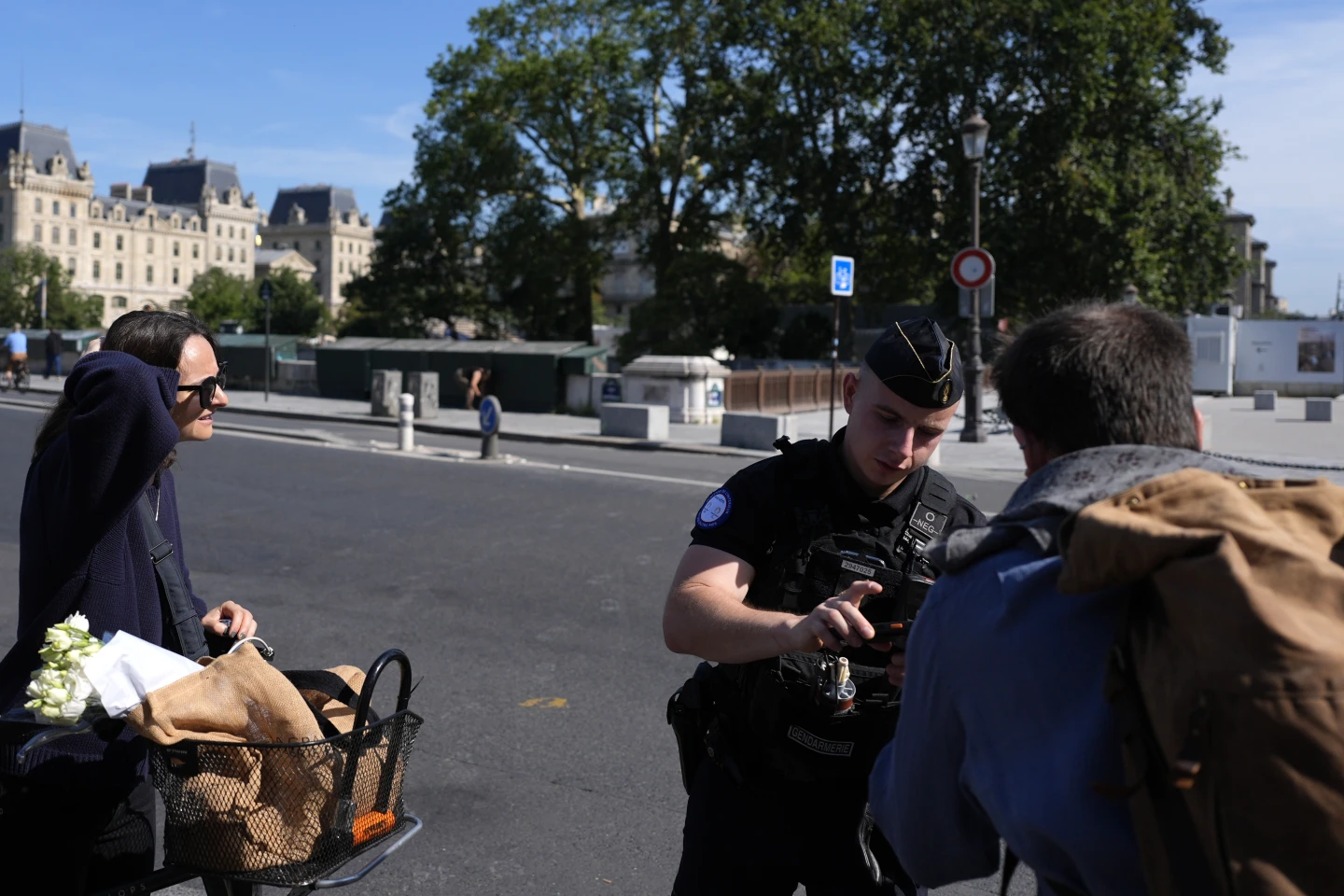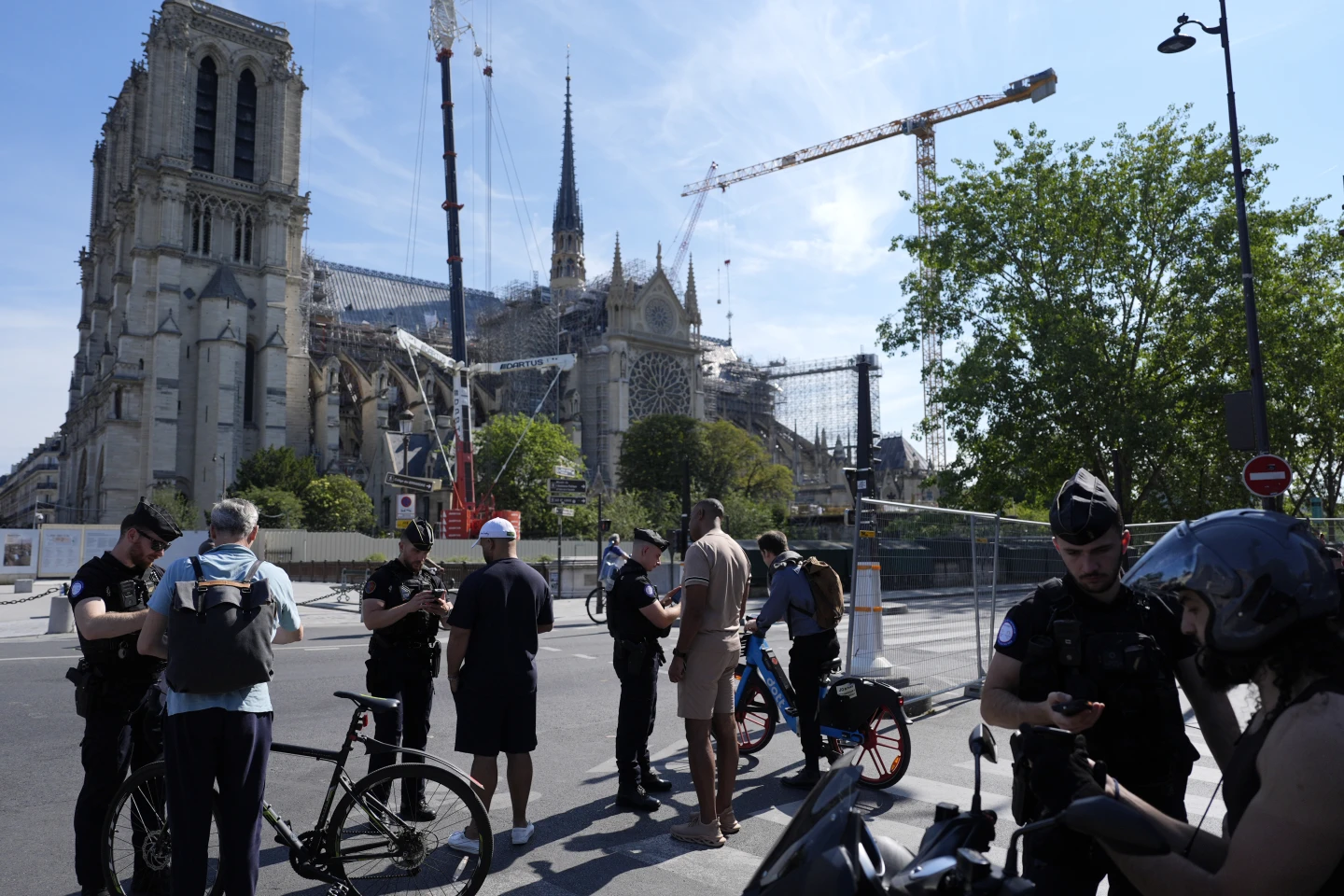A strict security zone was enforced across central Paris on Thursday, marking the start of an anti-terrorism perimeter for the Olympics along the Seine River. This closure affected a stretch of several kilometers, restricting entry to Parisians and tourists who hadn’t obtained a QR code pass in advance.
The QR code became crucial, allowing access beyond metal barriers that outlined the security zone aimed at safeguarding the Olympics’ opening ceremony on July 26.
“I didn’t realize it was starting today,” said Emmanuelle Witt, a 35-year-old communications freelancer, who was stopped by police near the Alma bridge while cycling across the city. She hurriedly filled out the online form on her phone to obtain her QR code, unaware that the approval process could take days.
Those fortunate to possess the QR code—either on their phones or printed out—passed smoothly through police checkpoints at gaps in the barriers, which were taller than most people.
However, those without the QR code were mostly turned away, despite protests and attempts to persuade the officers.
“It’s too much, it’s excessive, the whole thing is a hassle,” complained Nassim Bennamou, a delivery man who was denied access to the street leading to Notre Dame Cathedral on his scooter.
Authorities introduced the QR code system last year and have been engaging with local residents for months to explain the new rules. However, not everyone was informed, resulting in many visitors being redirected away from Paris’ famous landmarks.

“We didn’t know we needed a QR code,” said Takao Sakamoto, 55, who was turned away from the Eiffel Tower near Bir Hakeim metro station. Visiting from Japan with his wife, he settled for taking a photo of the Eiffel Tower from a distance, behind fences and police cars. “That will have to do,” Sakamoto lamented.
Meanwhile, those lucky enough to have the necessary QR code enjoyed a unique experience—witnessing a nearly empty central Paris on a sunny summer day.
“It’s surreal, like we’re the only ones here,” remarked Sarah Bartnicka from Canada, who was out for a morning jog with a friend. She even took a selfie with a police officer on the deserted Iéna bridge to mark the occasion.
“I understand the reasons for this,” commented Carla Money, a 64-year-old American who managed to enter the restricted area with her family and was exploring near the Saint-Michel fountain.
The security perimeter was implemented early Thursday morning and will remain in place until after the ceremony. In a departure from tradition, Paris chose to host the opening ceremony on the river rather than in a stadium like previous host cities. Most of the river security measures will be lifted after the ceremony concludes.
Officers were instructed to be courteous and helpful as commuters and others encountered the perimeter for the first time.
